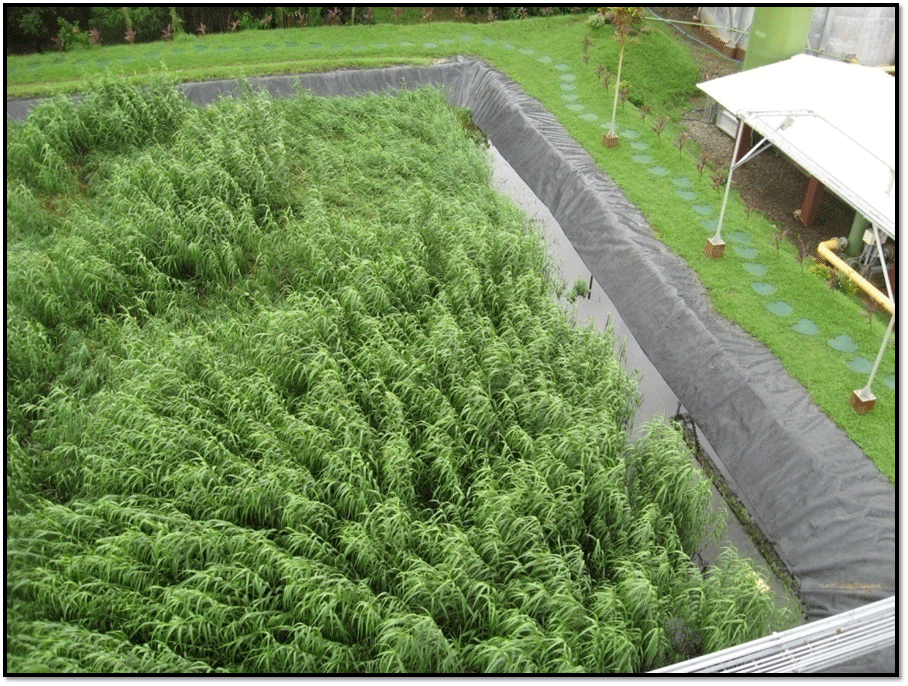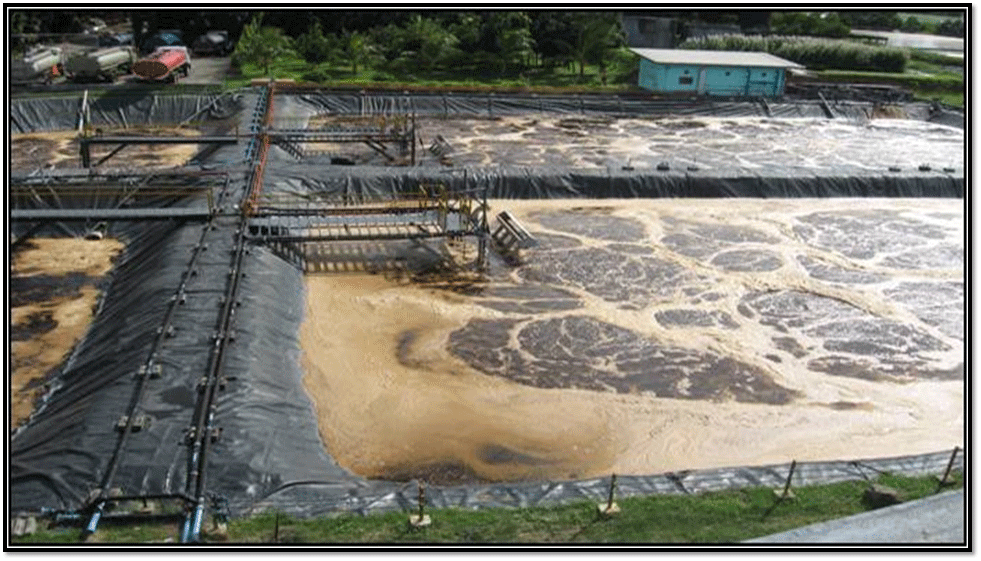1 - 4
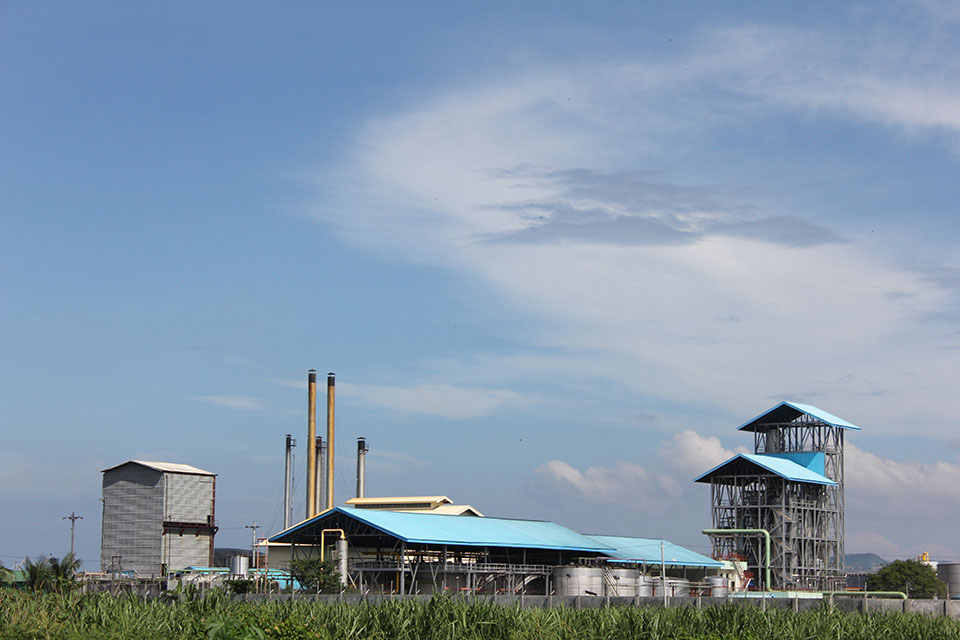

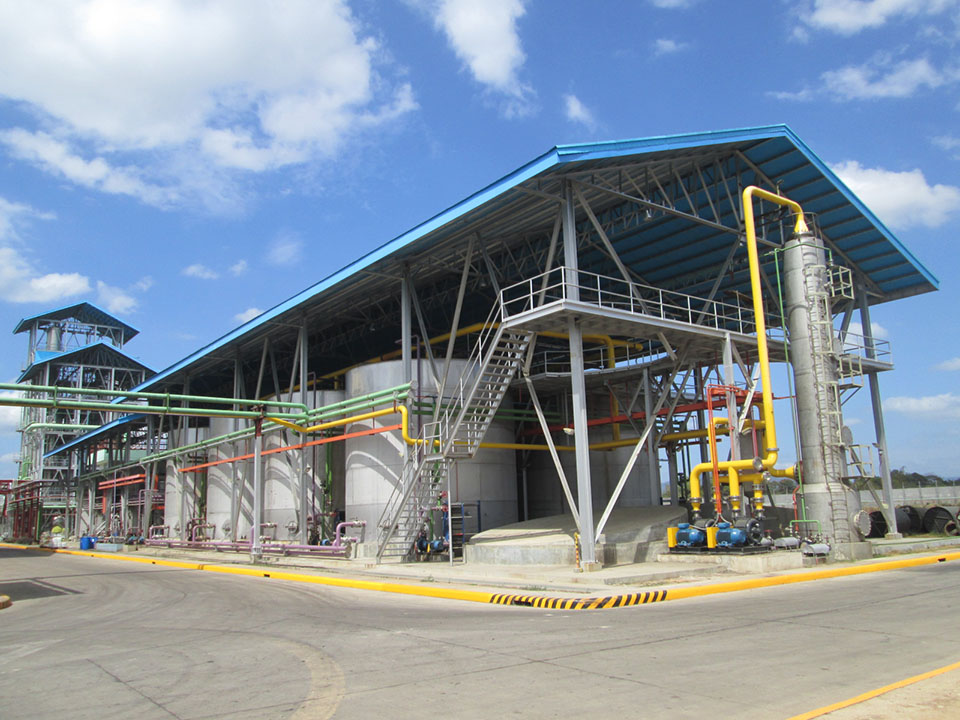
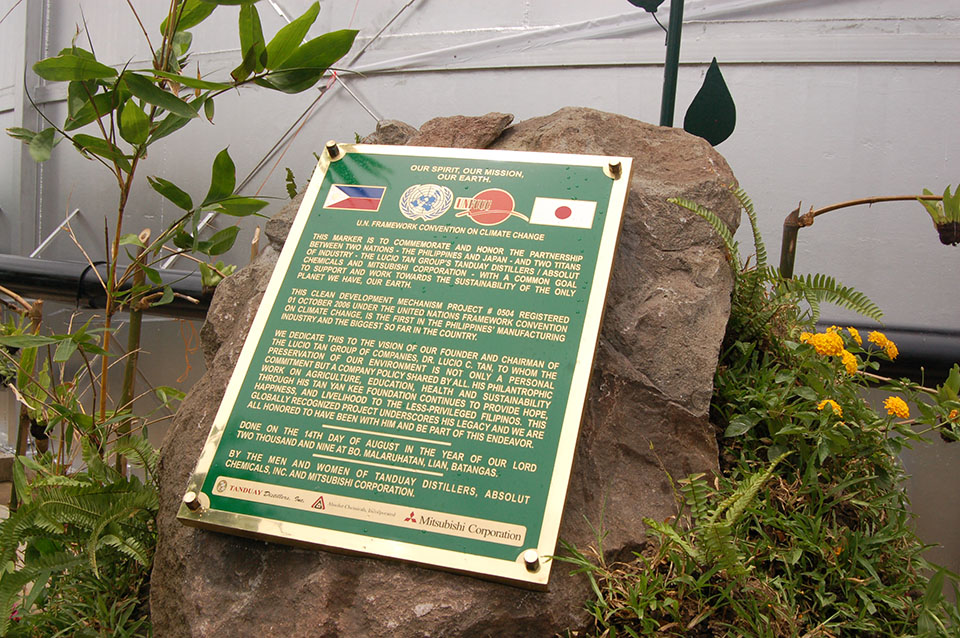
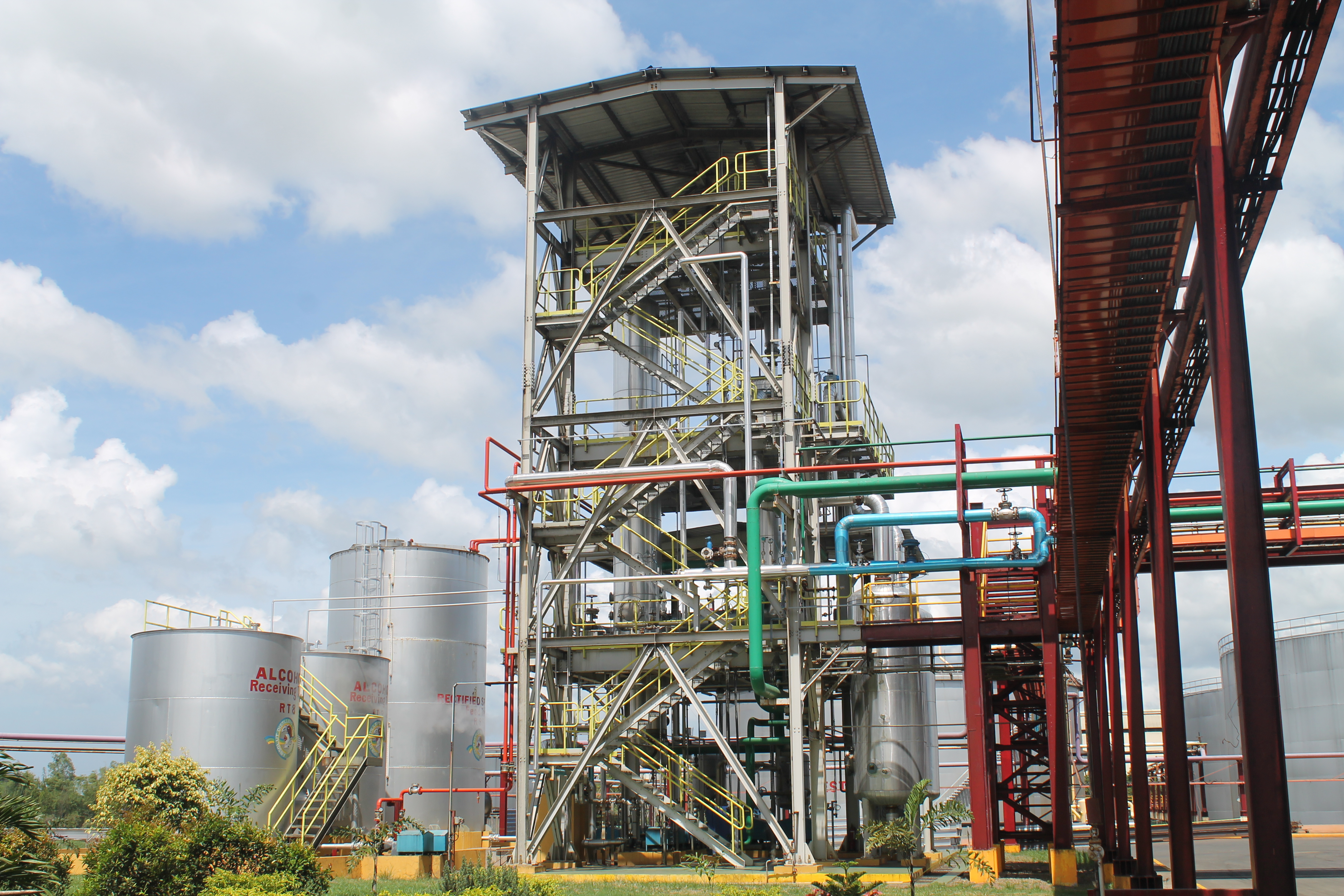
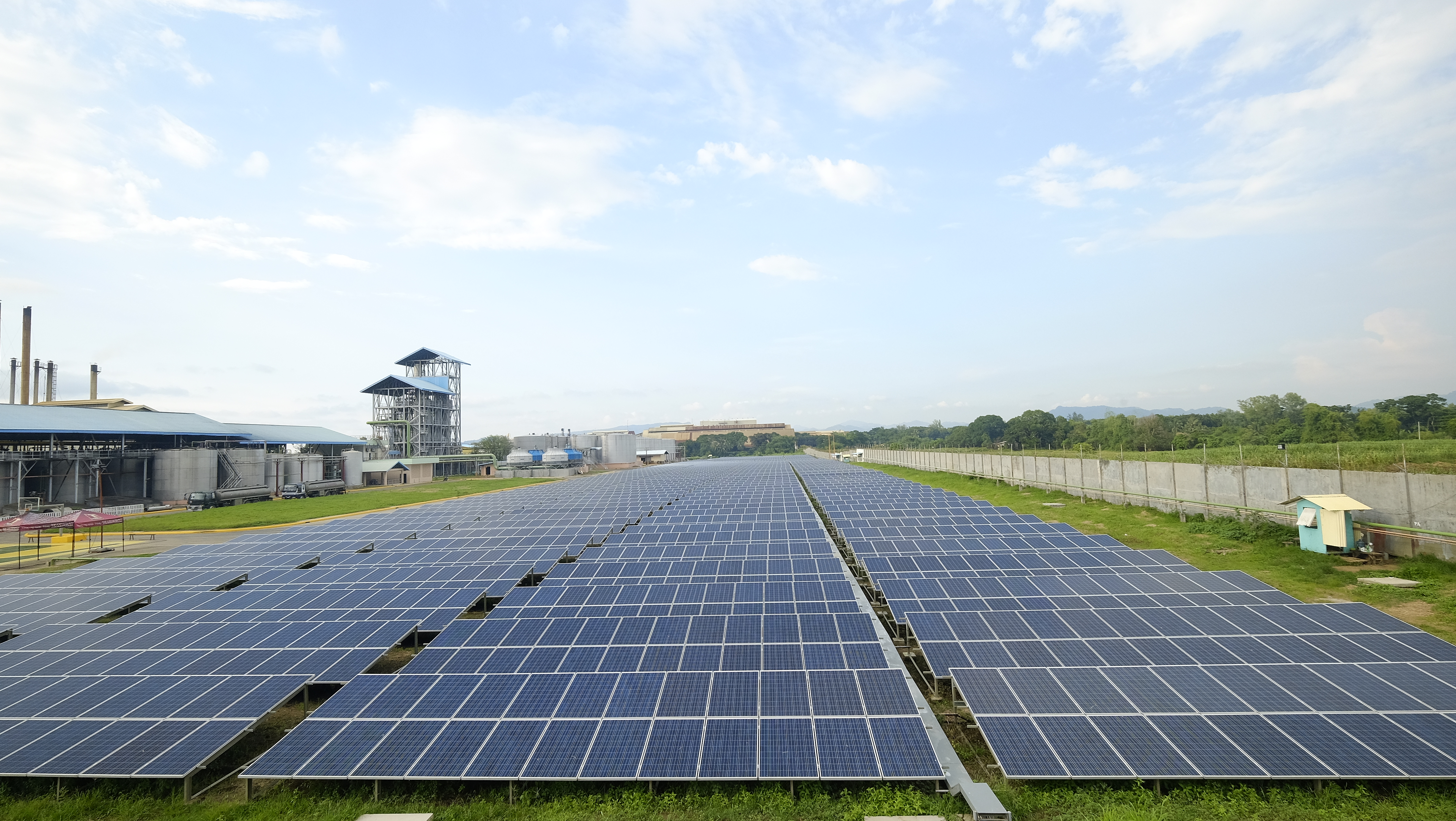
It was in 1990 that Century Distillery Corporation became Absolut Chemicals Incorporated (ACI), and on that same year, became part of the Lucio Tan Group of Companies (LTGC).
In 2010, Absolut Chemicals Incorporated (ACI) became Absolut Distillers Incorporated (ADI).
To date, ADI garnered 15 international and national awards.
What Absolut has made of itself is too far from the image of its past. The means of production are improved and optimized, enhancing the overall plant efficiency. In the beginning of fermentation phase, to the extraction of finished product in the distillation process, up to the wastewater management, everything is maxed out and is put into beneficial use for the company and the community as well.
From its predecessor, Century Distillers, Inc., to its present position as a green distillery, Absolut Distillers, Inc. has always strive to fulfill its mission of sustainable operations, protecting the environment and the community.
The third installment in ADI’s venture in renewable energy sector,
the 100 KLPD Bioethanol Plant is another proof of the unceasing commitment of ADI in helping the effort of maintaining a much cleaner air and environment through sustainable operations.
ADI’s 2 MW Solar Power Plant is the first solar power plant in Batangas and is embedded within the distillery complex.
«
»
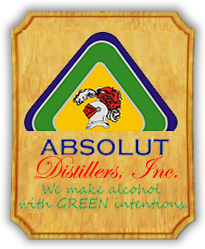
Home
About Us
Achievements
The Green Cycle
Green Initiatives
The Journey
The Statement
The Organization

The Absolut Journey
In late 1980’s, in a parcel of land situated in Brgy. Malaruhatan, in the town of Lian, Batangas, a small distillery was established in the midst of vast sugarcane fields and bordered in the north by the river of Lian. Antonio Tee Ten founded the distillery known as Century Distillery Corporation and was incorporated in 1987.
It was in 1990 that Century Distillery Corporation became Absolut Chemicals Incorporated (ACI), and on that same year, became part of the Lucio Tan Group of Companies (LTGC).
Following its inception, the ensuing years seemed better for Absolut. In 1992 and 1996, it acquired additional boilers from different plants to augment its production capability. Beside from the boilers, the first high density polyethylene lined lagoons in the alcohol industry were installed and put into operation in 1997. But behind these new additions one cannot mask the scene within its distillery operation; the prevailing condition of its distilling columns and most of its plant equipment is near decrepitude.

Distilling columns and the majority of its equipment and apparatus were from Nation Alcohol in Bulacan which dates way back 1975. Indeed, Absolut grasp the fact that it cannot sustain continuous operation without suffering further losses; so in 2000, realizing the scenario, Absolut embarked on improving its distilling capabilities by accumulating scrapped columns from Dyzum Distillery Incorporated and Berbacs Chemicals Incorporated and later modifying it to suit the Plant’s requirement.
Succeeding years were nightmarish to Absolut as it found itself in the midst of environmental issues and complaints from the community. However, in 1999, through resilient research and development efforts for possible solutions, Absolut has stumbled upon one of its biggest pride, the Organic Liquid Fertilization Program. This long-sought solution has been made possible with the assistance of UP- BIOTECH from the University of the Philippines-Los Baños.
On the following years, Absolut undertook further improvement on its Wastewater Management and Pollution Prevention Program; and with the cooperation of Kingsford Environmental, the first Sequential Batch Reactor 2 in the alcohol industry was established. Subsequently, the first experimental Reed Bed System in the country was constructed with the assistance of Australian Wetlands Pty., a subsidiary of CRC.
In March, 2004, Absolut initiated the Philippine Environmental Partnership Program- Environmental Management Plan (PEPP-EMP) aimed at self-regulation and environmental stewardship.

In March, 2004, Absolut initiated the Philippine Environmental Partnership Program- Environmental Management Plan (PEPP-EMP), together with the Center for Alcohol Research and Development (CARD) Foundation and the Department of Environment and Natural Resources (DENR), aimed at self-regulation and environmental stewardship.
Being a part of LTGC for several years, Absolut was given a boost when it was acquired by Tanduay Distillers Incorporated, LTGC’s liquor company, as its wholly-owned subsidiary in 2005. One of its biggest achievement took place on October 1, 2006, when Absolut was registered by the United Nations Framework Convention on Climate Change (UNFCCC) as a Clean Development Mechanism (CDM) Project #0504; hence in November 27, 2007, under memorandum of agreement, Absolut secured funding from Japan’s Mitsubishi Corporation for the implementation and construction of an anaerobic biogas digester and post-gassing lagoon to capture methane gas that would serve as alternative fuel for the boilers and prevent it from sending it up to the atmosphere. This project is the Philippines’ first and largest CDM project in the private and manufacturing sector. The CDM is being undertaken by the United Nations – sponsored Kyoto Protocol signed in 1995 by more than 170 countries and organizations.
Also, in mid 2007, realizing a need for sustainable development on alternative alcohol substrate, Absolut started an experimental plantation of sweet sorghum.
To be aligned in LTGC’s aspirations of reaching the demands of a growing market here and abroad, change for the company is inevitable and so on 2010, Absolut Chemicals Incorporated was renamed Absolut Distillers Incorporated (ADI). But the renaming wasn’t the only change that had happened to Absolut because in late 2011 the construction of the expansion plant commenced and had made its maiden operation in early 2013. This huge project had invigorated and further improved the plant’s production capability thus a great extent in helping realize the aspirations of the Group.
Everything Absolut had done is consistent with the company’s desire to be different and earnestly accomplish its corporate social responsibilities (CSR) and lend the mother company, Tanduay Distillers Incorporated, and the Lucio Tan Group of Companies a supporting hand in pursuing its goal of becoming an organization committed in safeguarding the environment and the place where we all lived, our Mother Earth.

Mission
ADI is committed to its customers to produce world class quality alcohol. The Management empowers and trains its employees to become responsible, educated, and dedicated individuals, mindful of their role in protecting the environment and the community through sustainable development.
Vision
To become a world-class, eco-friendly distillery with well-trained employees dedicated in achieving customers’ delight and total productivity.
Corporate Values
Excellence // Teamwork // Integrity // Concern for People // Loyalty to the Organization

GERARDO TAN TEE
Chief Operating Officer/
Overall-in-Charge of LTGC Distillery Operations
JAIME GIOVANNI TAN
Assistant Vice President, Administration/Technical Services Dept.
LERENA ANTONIO
Assistant Vice President, Process
ROBERTO CHONG
Manager, Warehouse
Asian Alcohol Corporation
In August 2005, Tanduay Distillers, Inc. acquired controlling stake in liquor firms Asian Alcohol Corp. and Absolut Chemicals, Inc. for P1.7 billion. Tanduay used existing credit lines with local banks totaling P3.0 billion to finance the deals. Tanduay paid P1.153 billion for the stake in Asian Alcohol and P567 million for Absolut Chemicals.
In 2007, TDI subscribed to the increase in the authorized capital of AAC and ACI thereby increasing its equity in the two companies to 93% and 96%, respectively.
Subsidiaries
Asian Alcohol Corp. is the second biggest distillery in the Philippines located in Negros Occidental. Asian Alcohol has a distillation process that uses molasses, yeast, water and other ingredients. It has a 10-hectare plant in Negros, which is the center of the country’s sugar industry. Plant facilities include aging facilities and a modern wastewater treatment plant which converts distillery waste into biogas energy for its power requirements. It has a daily rated capacity of 210,000 liters of fine quality ethyl alcohol. It sells 100% of its output to Tanduay Distillers. This output comprises 70% of Tanduay Distiller’s ethyl alcohol requirements.
AAC has a methane gas capture system that enables it to use the methane generated from distillation as power to fire up the boilers. It is currently embarking on an expansion program that will modernize and increase its distilling capacity by 100%.
Absolut Distillers, Inc.
Absolut Chemicals is a medium-sized distillery in Batangas. It has a nine-hectare plant in Lian, Batangas wherein 60% of the plant site is allotted to its water treatment facility, which converts distillery wastes into environment-friendly form. Absolut Chemicals has a daily rated capacity of 75,000 liters of fine ethyl alcohol. It sells 100% of its output to Tanduay Distillers. This output comprises 30% of Tanduay Distillers’ ethyl alcohol requirements. ACI is upgrading its distillation plant to enable it increase its production of extra neutral alcohol.
Subsidiaries
ACI has entered into an agreement with Mitsubishi Corporation of Japan for the installation of a high-rate thermophilic anaerobic digester and lagoon system that will capture methane and use it at power for the distillation process. This will enable ACI to reduce its power cost by an estimate of 50% of current consumption levels. The project with Mitsubishi is being undertaken under the Clean Air Development Mechanism Project of the 1997 Kyoto Protocol – a UN sponsored program that aims to reduce the emissions of harmful gases like methane into the atmosphere which emissions are the primary cause of global warming. Mitsubishi has committed to provide the funding for the project.
Introduction
Processes
The Absolut Legacy
From its predecessor, Century Distillers, Inc., to its present position as a green distillery, Absolut Distillers, Inc. has always strive to fulfill its mission of sustainable operations, protecting the environment and the community.
What Absolut has made of itself is too far from the image of its past. The means of production are improved and optimized, enhancing the overall plant efficiency. In the beginning of fermentation phase, to the extraction of finished product in the distillation process, up to the wastewater management, everything is maxed out and is put into beneficial use for the company and the community as well.

Fermentation
Fermentation is a process wherein diluted molasses called “wort” is being converted into ethyl alcohol and carbon dioxide by the action of yeast.
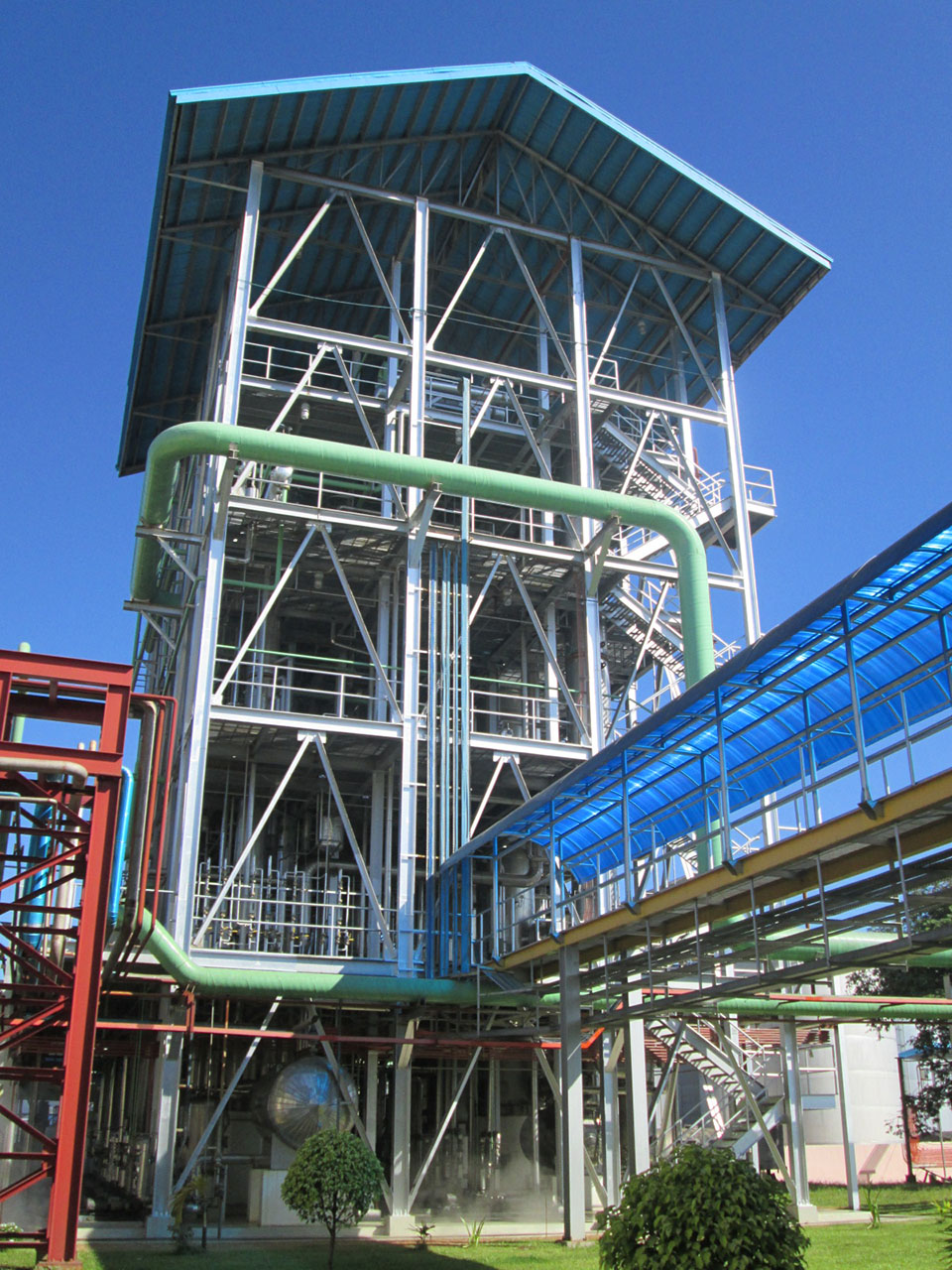
Distillation
Distillation starts by feeding fermented mash or “beer” to distilling columns by using steam as the heating medium in order to separate crude alcohol from the “beer”.
The crude product further undergoes purification, rectification, and polishing to produce high quality alcohol.
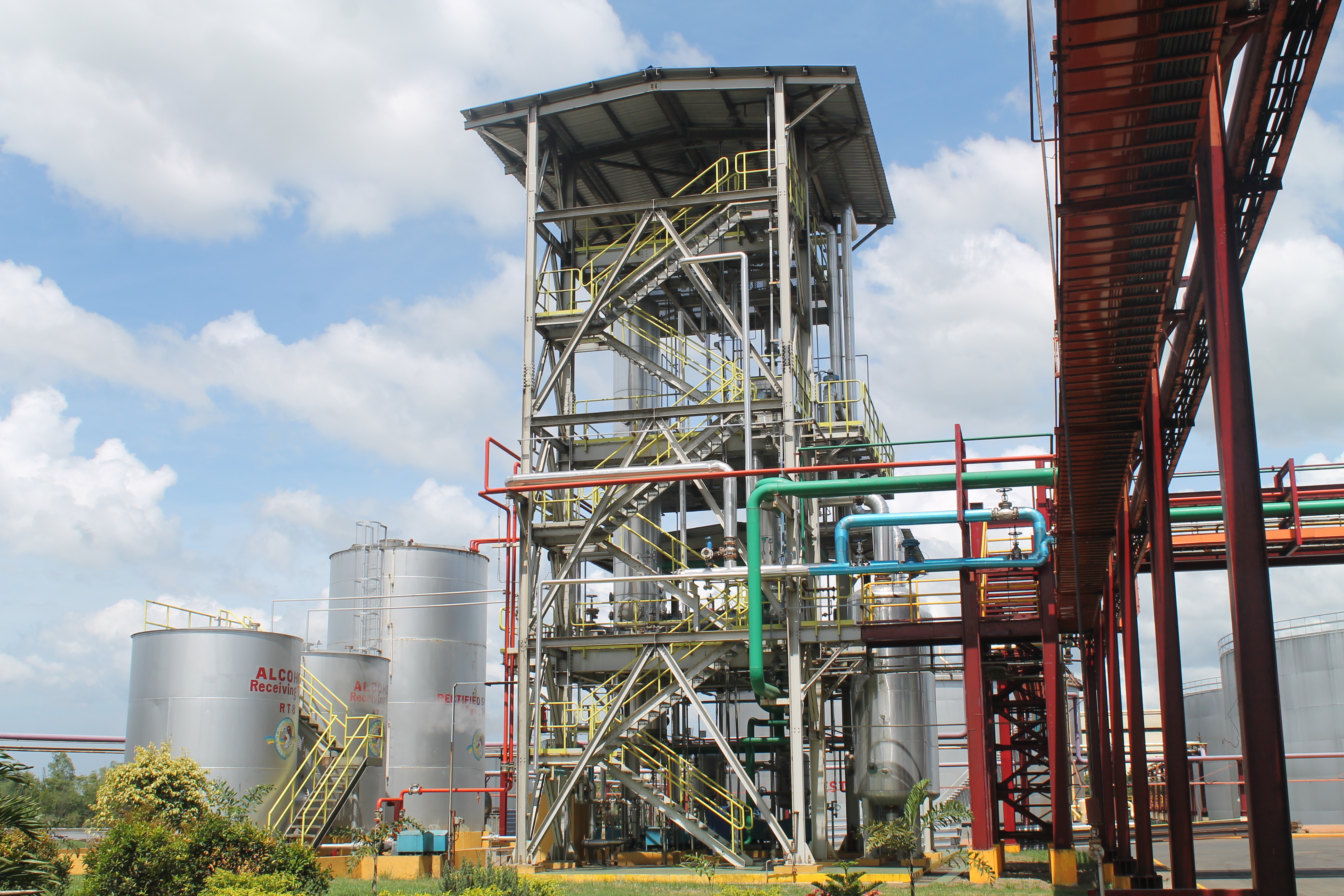
Dehydration
The hydrous alcohol from Distillation section will be dehydrated to produce anhydrous ethanol. This is the final product that will undergo denaturing process prior to client pick-up.
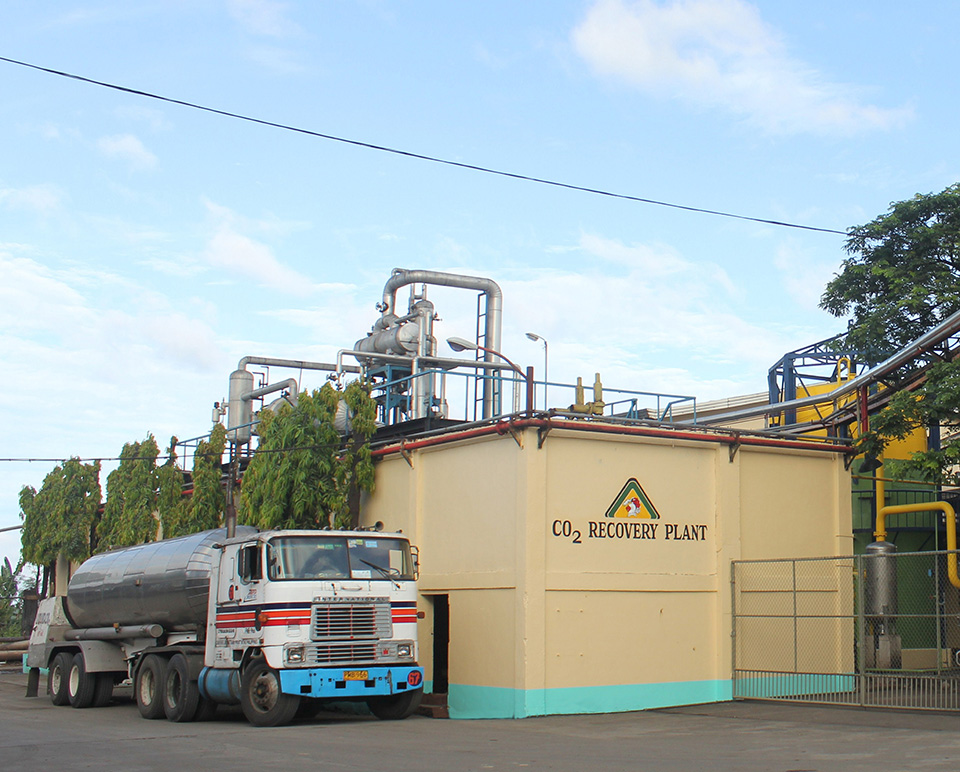
Carbon Dioxide Recovery
The CO2 recovery system is designed to produce pure food grade liquid CO2 from collected CO2 raw gas which comes from the fermentation of molasses. A portion of the liquid CO2 production is then solidified and sold as dry ice. Aside from the process outputs, this practice also helps in protecting the environment through the collection of excess CO2 from fermentation vats instead of venting it off to the atmosphere.
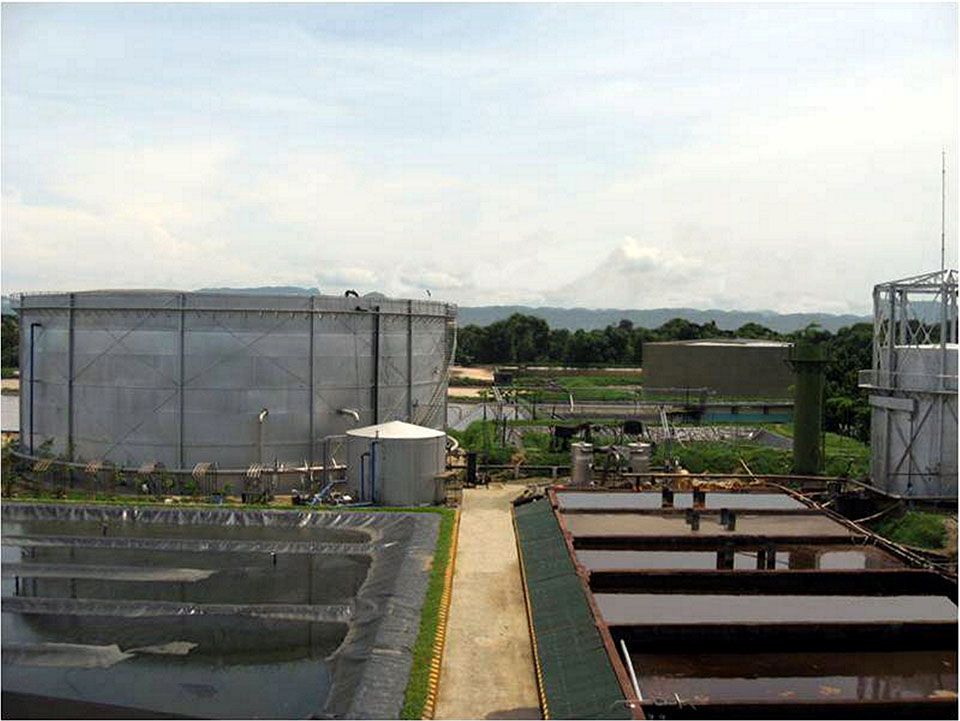
Waste Treatment
The treatment facility, registered as Clean Development Mechanism Project No. 0504 under the Kyoto Protocol, is the Philippines’ first and largest CDM project in the private and manufacturing sector.
Moreover, the “zero effluent discharge” had been observed since 1998 through the implementation of the “ACI Comprehensive Fertilization Program.”
FERMENTATION
DISTILLATION
DEHYDRATION
CARBON DIOXIDE RECOVERY
WASTE TREATMENT
 The CDM Project
The CDM Project
With the issue of global warming and climate change getting hotter so as the talks of how to help mitigate the effects of these phenomena.
Read more >>
The Orga-Ponics Project
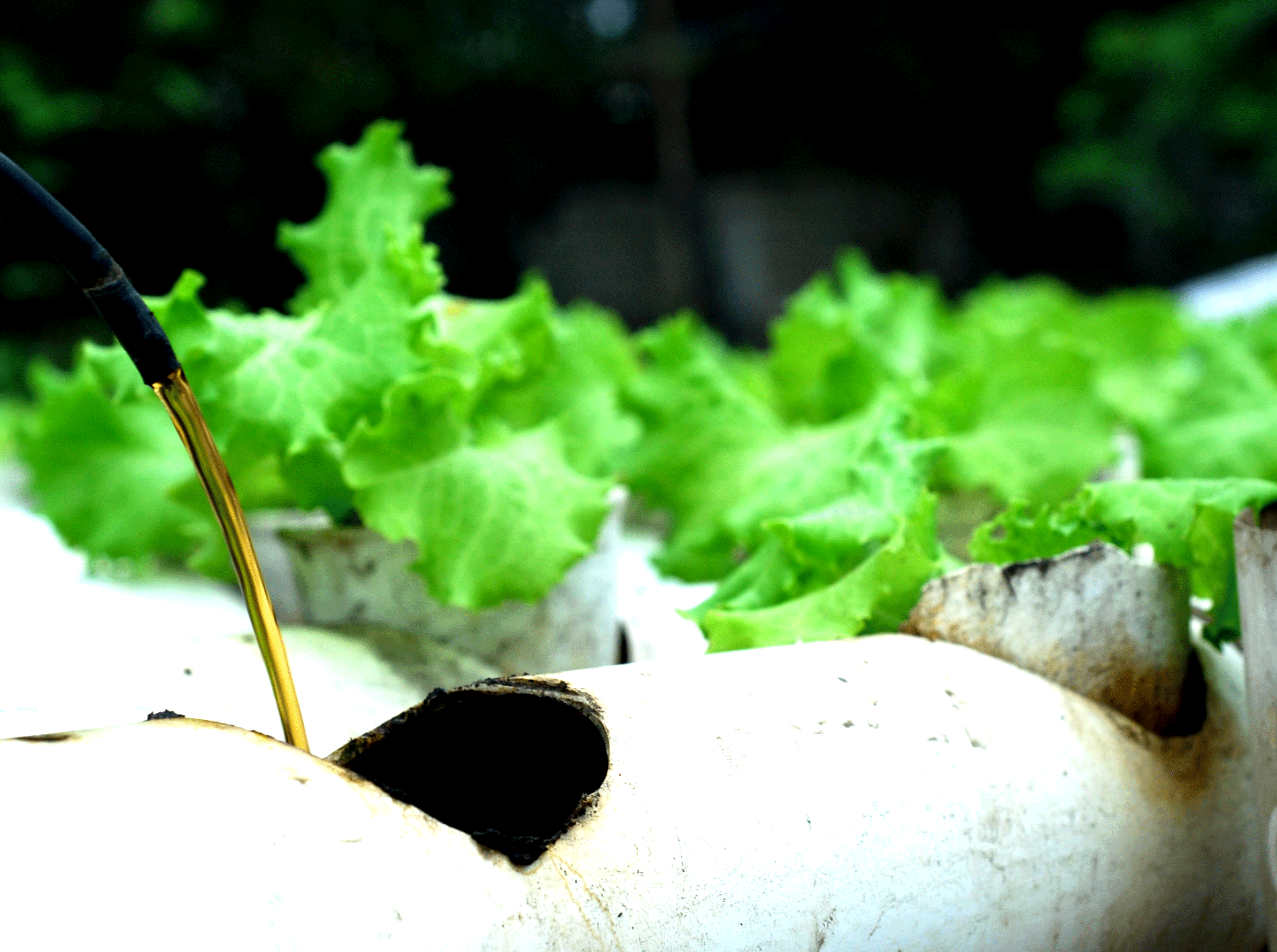
Many, if not most vegetables will grow on plain water alone but we cannot expect them to grow healthy and reach the expected results. Most likely, these will grow stunted and may eventually die prematurely. Therefore, we take good care of our vegetables by giving them their food – organic food.
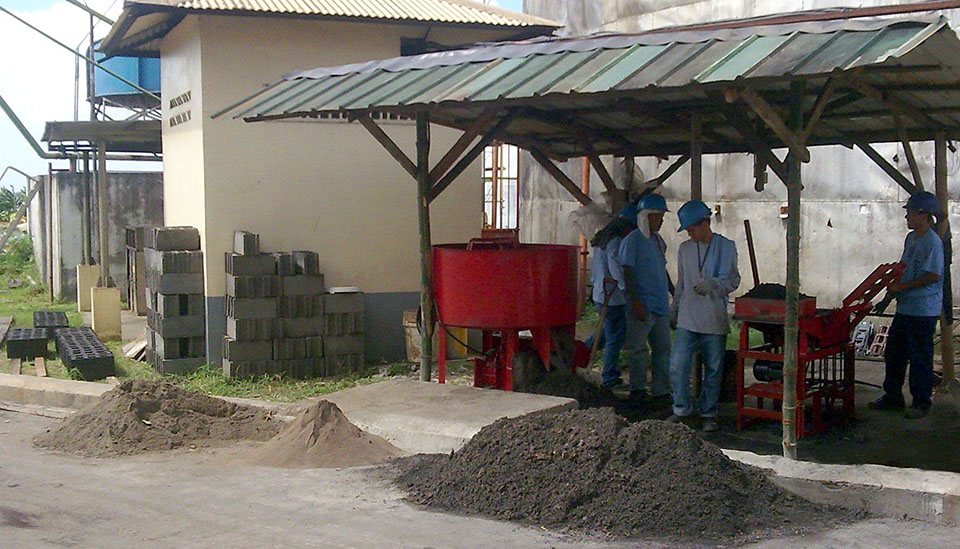 From Ash to Building Blocks
From Ash to Building Blocks
With the utilization of coal-fired steam boilers in its plant operation, ADI soon faced a new challenge in its waste management --- the disposal of coal ash. Coal ash contains toxic elements and unsafe coal ash dumping pose hazards and threats in public health and in the environment.
Read more >>Corporate Social Responsibilities
ADI Comprehensive Fertilization Program Read more >>
Donation of Medicines to BarangayRead more >>
Medical Mission 2016Read more >>
Inaugural Tanduay-Absolut Invitational Basketball CupRead more >>
ADI joins Brigada Eskwela 2014 Read more >>
Parokya Ni Edgar jammed Lian Read more >>
Adopt-A-River Water Body Program Read more >>
Libreng Gamutan sa Brgy. Malaruhatan Read more >>
Healthy Lungs, Happy Life Read more >>
The CDM Project
The Orga-Ponics Project
From Ash to Building Blocks
The Reed Bed System
Sequential Batch Reactor (SBR)
Bioethanol Project
Solar Power Plant Project
Corporate Social Responsibilities















